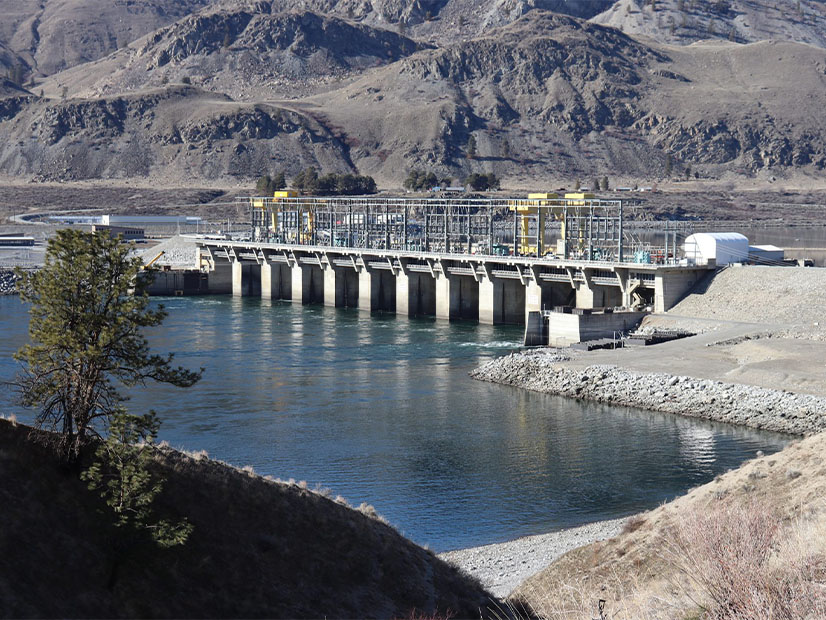
A bill zipping through the Washington State Legislature aims to boost the state’s prospects for landing one of four national “clean” hydrogen hubs to be funded under the federal Infrastructure Investment and Jobs Act (IIJA).
The State Senate unanimously passed Senate Bill 5910 on Feb. 12, advancing it to the House Environment and Energy Committee, which held a hearing on the legislation Tuesday.
Sponsored by Sen. Reuven Carlyle (D), the bill would create an Office of Renewable Fuels within the state’s Department of Commerce to support development of electrolytic hydrogen and other alternative fuels.
According to a bill summary, the new office would collaborate with other state agencies to accelerate market development of renewable fuel and hydrogen projects along their full life cycle, in part by supporting research and development around production, distribution and end uses. It would also identify ways to best deploy the fuels to support the state’s climate change mitigation and adaptation efforts.
The office would also be expected to take a role in boosting job creation and improving “economic vitality” while partnering with “overburdened” communities to ensure they benefit from clean fuels development. It would also review the state’s existing renewable fuels and hydrogen initiatives and support public-private opportunities that encourage adoption of clean fuels.
The office is expected to coordinate efforts with local state and federal governments, the private sector and universities.
The bill would additionally allow proposed hydrogen production projects the choice of applying for permits from the state Energy Facility Site Evaluation Council, rather than local governments. It would also authorize municipal utilities and public utility districts to produce, use, sell and distribute hydrogen and other renewable fuels.
Scoring Federal Funding
But SB 5910’s most significant impact could lie in Washington’s effort to land one of the four hydrogen hubs outlined in the IIJA, enacted last year.
The law allocates $8 billion for the creation of at least four hydrogen hubs across the country, as well as $1 billion for the domestic manufacture of the electrolyzers needed to convert water to green hydrogen. The U.S. Department of Energy will solicit proposals for the hubs until May 15 and select the four sites a year later.
“The legislature finds that Washington state is strongly positioned to develop a regional clean energy hub meeting the criteria of the IIJA and that … state funding assistance may help to promote and strengthen applications to DOE for federal funding,” the bill summary said.
Washington is likely to face stiff competition from other Western states also hoping to score a hydrogen hub. Southern California Gas and the Los Angeles Department of Water and Power are already unrolling some of the most advanced plans for creating such a hub, even without the promise of federal funding. (See related story, SoCalGas Proposes Hydrogen Pipelines.)
But with its ample water supplies and massive network of hydroelectric facilities, Washington is a promising contender. The state currently has one hydrogen production plant under construction near East Wenatchee, which will use Columbia River water as its source. The plant, to be operated by Douglas County Public Utility District near the Wells Dam, is scheduled to go online this spring. A hydrogen fueling station is on the drawing board for near East Wanatchee, and another is in the works for public transit buses in Lewis County, about 25 miles south of Olympia.
On Tuesday, five people testified in favor Carlyle’s bill, and no one testified against it.
“Our region is well positioned to become a hydrogen hub,” said Logan Bahr, state relations manager for Tacoma Public Utilities.
Dave Warren, representing the Washington Green Hydrogen Alliance and the Renewable Hydrogen Alliance, said, “We’re competing with New York and California on being a hydrogen hub. But this is ours to lose.”
He added that while the bill would provide $500,000 to set up the Office of Renewable Fuels, it does not include money to help hydrogen producers apply for the appropriate permits.
The bill “is embracing innovation and opportunity — opening them up instead of restricting them,” said Dan Kirschner, executive director of the Northwest Gas Association.
At an early February hearing before the Senate Ways and Means Committee, some testifiers also contended that the proposed office would help small businesses transition to using hydrogen as a fuel.
Meanwhile, poised for a full House vote is House Bill 1792, which would establish sales and use tax exemptions for the production of electrolytic hydrogen and for the sales of the electricity used to produce the fuel.


